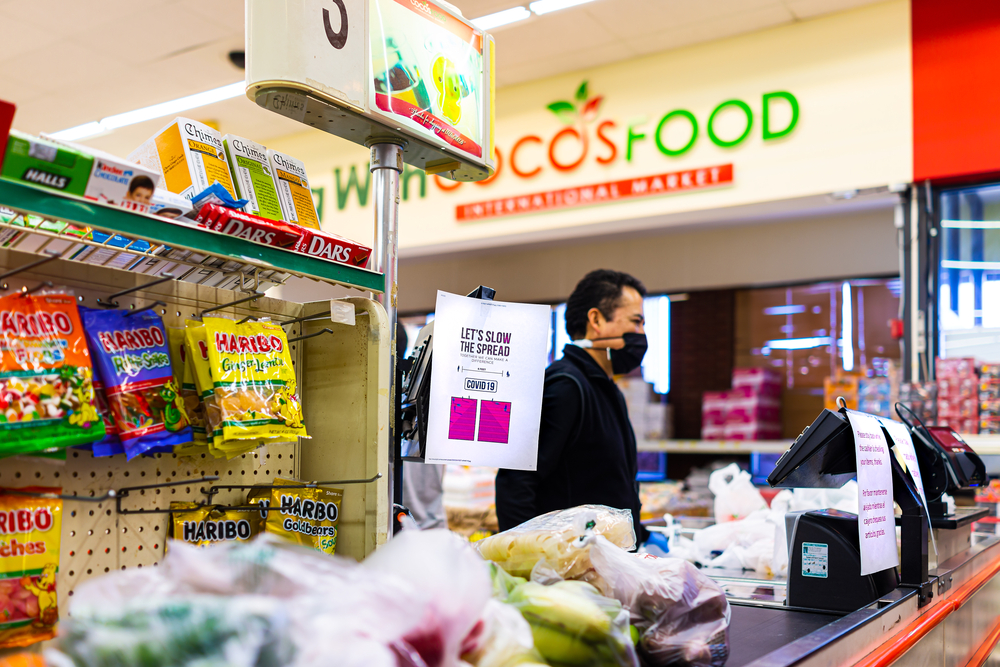Despite Their Title, Essential Workers Need Food Stamps More Than Others

A grocery clerk during COVID-19.
Photography by Andriy Blokhin on Shutterstock
A new analysis of census data, performed by the Center for American Progress—a research and advocacy group, sort of the liberal version of the Heritage Foundation—looked at how many of these essential workers are enrolling for the Supplemental Nutrition Assistance Program (SNAP). It found that 13.36 percent of “essential” workers used SNAP at some point in 2018. Only 7.8 percent of non-essential workers used SNAP that year.
Those working in food and agriculture were particularly vulnerable, with about a third of essential food and restaurant workers using SNAP, and a sixth of agriculture workers. Non-white Americans are more likely to work in these essential yet low-paying jobs; over half of those who worked essential jobs and received SNAP benefits in 2018 were either Black or Latinx.
Though there is a federal minimum wage, states have the option of increasing it, and some do. But in many states, including Texas, Pennsylvania, North Carolina, and Indiana the minimum wage is stuck at the absolute floor the federal government says is allowable, $7.25 per hour. A year’s salary at that wage is around $15,000 per year, barely over the poverty line, for a single person; it goes up from there for household incomes with multiple people.
SNAP eligibility requires the applicant to earn 130 percent or less of the poverty line, and those earning the federal minimum wage are applicable whether they’re supporting only themselves or others.
The data from the analysis does come from 2018, prior to the COVID-19 outbreak. After agitation from unions, some large employers of essential workers, including Target and Amazon, increased wages for essential workers. But in May, companies began cutting those increases back. Nothing has really changed for either essential workers or COVID-19; there is no vaccine, and rates of infection continue to rise nationwide. The work essential workers are doing is no less essential, and no less dangerous, than it was a few months ago. Yet their pay is being decreased back down to levels in which they qualify for, and need, government assistance to eat.
